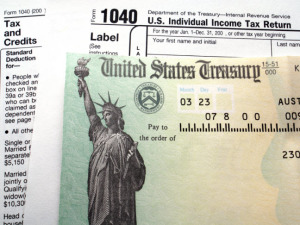Dear Liz: You’ve written about trusts recently, but I’m confused. What are the benefits of creating a trust and putting all of your assets in it? Does it make sense for someone in their 30s and without any major assets, such as a house, to create a trust? Will I need to create a new trust if I get married?
Answer: There are many different types of trusts, but they’re typically designed to protect assets in one way or another. If you don’t have a lot of assets, you may not need a trust — at least not yet.
One of the most common types of trusts is a revocable living trust, which is designed to avoid the potential costs and delays of probate, the court process that otherwise follows death. In some states, probate is not that big a deal, while in others, including California, probate can be lengthy and expensive.
It’s often possible to avoid probate using beneficiary designations on financial accounts and, in some states, on property including vehicles and real estate. That may be sufficient for small estates or people just starting out. Once you have a home and some assets you’ll want to investigate whether a living trust makes sense.
 Today’s top story: How to throw a blockbuster Oscar bash on an indie budget. Also in the news: Checking out your hotel room for safety, the stock market is back on the roller coaster, and why paper bank statements aren’t done just yet.
Today’s top story: How to throw a blockbuster Oscar bash on an indie budget. Also in the news: Checking out your hotel room for safety, the stock market is back on the roller coaster, and why paper bank statements aren’t done just yet.  Today’s top story: Why tax refunds aren’t fun anymore. Also in the news: 12 first-time home buyer mistakes and how to avoid them, 9 easy ways to earn travel rewards you’ll actually use, and Equifax says hackers stole more info than previously reported.
Today’s top story: Why tax refunds aren’t fun anymore. Also in the news: 12 first-time home buyer mistakes and how to avoid them, 9 easy ways to earn travel rewards you’ll actually use, and Equifax says hackers stole more info than previously reported.  Today’s top story: It’s tax scam season. Here’s when to call shenanigans. Also in the news: Starting with a budget when planning a wedding, how to find good, cheap stocks, and a major data breach at the Marine Forces Reserve.
Today’s top story: It’s tax scam season. Here’s when to call shenanigans. Also in the news: Starting with a budget when planning a wedding, how to find good, cheap stocks, and a major data breach at the Marine Forces Reserve. Today’s top story: What every first-time flyer needs to know. Also in the news: 4 steps to finding good, cheap stocks, how to buy a house that hasn’t been built yet, and a surprising source you can tap for long-term care services.
Today’s top story: What every first-time flyer needs to know. Also in the news: 4 steps to finding good, cheap stocks, how to buy a house that hasn’t been built yet, and a surprising source you can tap for long-term care services.